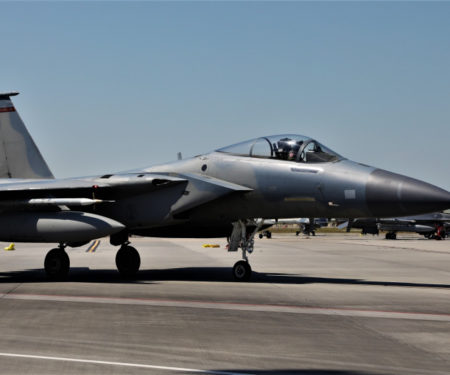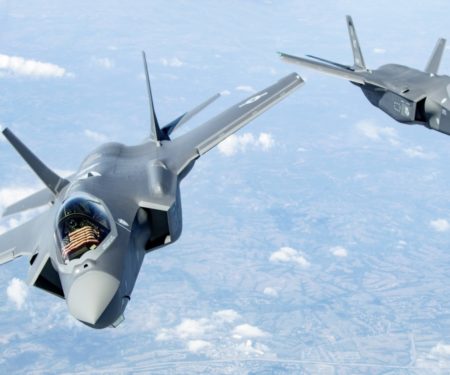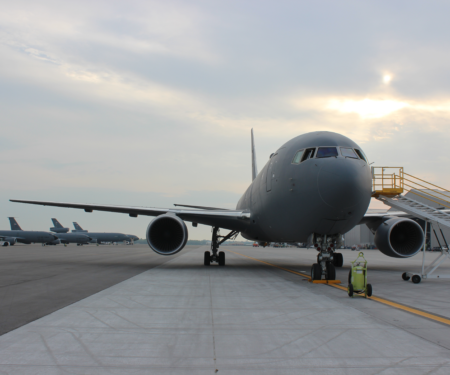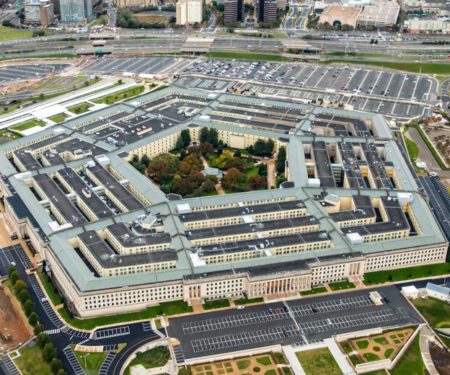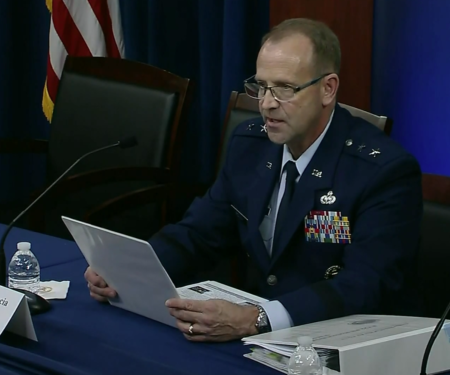Radar Sweep
US Tells Russia it Won’t Rejoin Open Skies Arms Control Pact
The Biden administration has decided not to rejoin the Open Skies Treaty with Russia, which President Donald Trump withdrew from in 2020. The treaty, which allows surveillance flights over military facilities in member countries, was first signed by the U.S. in 1992 and went into effect in 2002. In an announcement, the State Department said that Russia had violated the treaty and continued to do so, and the Kremlin’s behavior has been “not that of a partner committed to confidence-building.” President Joe Biden and Russian President Vladimir Putin are scheduled to hold a summit in Switzerland in mid-June.
The Air Force's Newest Fighter Jet May Not be What it Needs to Win the Next War
The Air Force accepted its first F-15EX in March, touting the fourth-generation fighter as a key part of the branch’s future plans to utilize both fourth- and fifth-generation planes and replace older models like the F-15C and F-15D. But critics, including Doug Birkey, the executive director of the Mitchell Institute for Aerospace Power Studies, are unconvinced, saying the plane’s lack of stealth capabilities and cost will make it a burden in future conflicts. Birkey even called the F-15EX “an expensive way of getting shot down.”
‘A National Outrage’: Lawmakers Seek Solutions to Food Insecurity in Military, Veteran Families
The issue of food insecurity among military families is a fraught one, with little reliable data available. But lawmakers and advocates say there are too many service members who can’t provide enough food for their families, especially at lower pay grades. Among the proposed solutions to the problem are an allowance for lower-income military families, a six-month transitional SNAP program for new veterans and not counting the Basic Allowance for Housing as income when determining SNAP eligibility.
OPINION: The Space Force Needs Deterrence and War-winning Capabilities
“Given the threats we face in space, especially from peer adversaries such as China, it is crucial that the USSF establish a credible, viable space deterrent force. This requires a service capable of degrading and/or destroying an adversary nation’s critical space infrastructure and their space forces. The USSF lacks key elements that are necessary to empower effective deterrence on orbit: sufficient offensive and defensive means to achieve its statutory functions as an armed force,” writes Christopher M. Stone, senior fellow for space studies at AFA’s Spacepower Advantage Research Center, Mitchell Institute for Aerospace Studies.
NASA gets billion-dollar increase in Biden's 2022 budget proposal
NASA submitted its largest ever budget proposal on May 28, seeking nearly $25 billion for the fiscal year 2022. That marks an increase of 6.6 percent over 2021, and the extra money is expected to go towards both earth science study and funding for the Artemis program, aimed at putting humans back on the moon by 2024. NASA administrator Bill Nelson called the budget request a signal that “science is back. The record funding in the science area will help NASA address the climate crisis and advance robotic missions that will pave the way for astronauts to explore the moon and Mars."
DHS Cyber Order Signals Shift To ‘Mandatory Measures’
The Department of Homeland Security has upped its requirements for pipeline companies to report cybersecurity issues, mandating that they undergo a cybersecurity assessment and report results to the TSA and CISA, as well as any other potential or actual cyber threats in the future. The new rules are in response to the Colonial pipeline ransomware attack, which caused major gas shortages on the East Coast this month, and come after the Biden administration had already instructed defense contractors to report cyber threats.
Why Veterans Are Targeted by Radicals Online
Extremism within the military’s ranks has become an increasingly large concern for leaders as of late, with Defense Secretary Lloyd J. Austin III ordering an unprecedented “stand-down” in April after it was revealed that several veterans and Active service members had participated in the Jan. 6 insurrection at the U.S. Capitol, including Air Force veteran Ashli Babbitt, who was shot and killed. Kristofer Goldsmith, an Iraq War veteran, has started a firm that analyzes domestic extremism and says military members are targeted not because they are more vulnerable or susceptible, but because of their value as influencers on family and friends.
The Space and Air Forces Launch an LGBTQ Task Force
Maj. Gen. Leah Lauderback, who leads the Air and Space Forces’ LIT—Lesbian, Gay, Bisexual, Transgender, and Queer/Questioning Initiative Team—spoke at a virtual roundtable last week, reflecting on her own history with Don’t Ask, Don’t Tell and detailing how her task force is working on creating a more inclusive service.
OPINION: Don’t Just End the War in Afghanistan, Repeal the Resolution That Authorized It
“The ‘forever war’ isn’t limited to boots on the ground in Afghanistan: Nearly two decades after 9/11, the U.S. is engaged in combat operations in some 14 countries, bombing half a dozen of them on a semi‐regular basis. Ending one deployment won’t bring an end to endless war. Undergirding this vast military overstretch is the congressional resolution passed three days after the 9/11 attacks. Three Presidents in a row have stretched the 2001 Authorization for the Use of Military Force into an enabling act for far-flung, seemingly endless war,” writes Gene Healy, senior vice president, and John Glaser, director of foreign policy studies, at the Cato Institute.
Astronauts on Set: Space Station May Host Wave of TV Shows and Films
Who wants to be an astronaut? If the answer is you, there’s a reality TV show, appropriately titled “Who Wants to Be an Astronaut?,” that you ought to apply for. The Discovery Channel is seeking to cast about 10 would-be astronauts to compete during the series’s eight-episode run next year for a seat on a real-life trip to the International Space Station, followed by live coverage of the launch of the winner on a SpaceX rocket.
